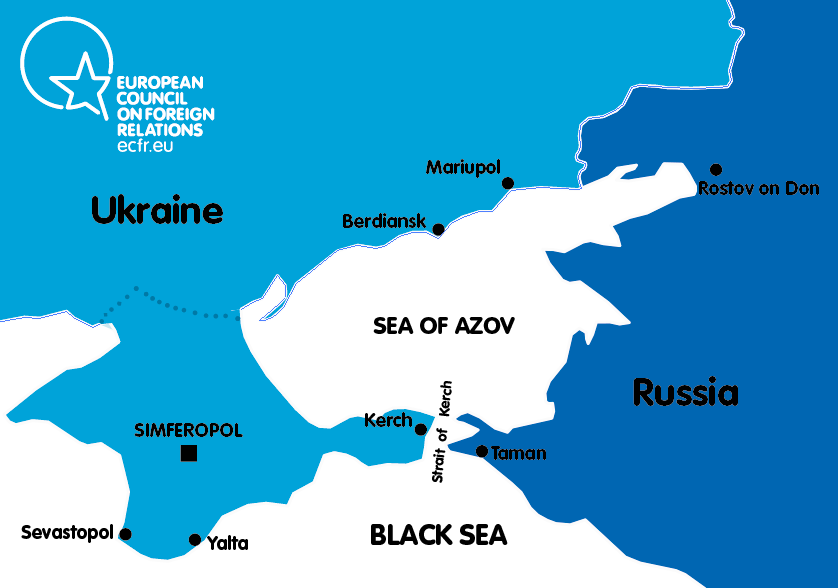Russia fired on and seized two Ukrainian gunboats and a tug, near the Kerch Straight. This strait leads from the Crimean Sea into the Sea of Azov. US and Western reaction has been condemnatory, and in this case, I think correctly. The Sea of Azov abuts a lot of the Ukraine, and the 2003 treaty gives the Ukraine the right of access to it.
Of course, the geography of the strait between Crimea and Russia makes it an easily-sealed strait now that Russia controls Crimea, but on the face of it, it appears to be an act of war to seize ships.

The phrase “on the face,” is important, because it is possible that the ships did move into Russian waters. The Ukrainians say they didn’t, the Russians say they did. But if they stuck to the Strait of Kerch, as I understand it, they do have the right of access.
The declaration of martial law, which affects ten border regions, is more interesting. Mind you, a lot of those regions aren’t really under the Ukrainian government’s control any longer, but it gives the military rights to shut down strikes and protests, and, one assumes, to seize people at will.
The Ukraine is screaming that Russia might invade it, but that seems unlikely. If Russia was going to do that, they should have done it during the initial crisis.
The Ukraine is a bleeding wound for Russia, diplomatically, being used to justify all sorts of sanctions and other harmful actions. It is a situation that Russia can’t seem to resolve; invasion would be crazy, and it would precipitate full economic sanctions and a guerrilla war. But withdrawing entirely would lose Crimea and Sevastopol, and probably lead to the Ukraine joining NATO, a Russian red line.
The obvious “deal” which should probably be made is to allow Crimea to stay in Russia (all evidence is that, in fact, most Crimeans do want to be part of Russia, the Crimean Tatars are a minority, and Crimea was part of Russia for far longer than it was part of the Ukraine), stop supporting rebel movements in the rest of the Ukraine, and restore ordinary relationships.
Neither side appears willing to make this deal, nor trust the other side to keep it. And the sides are Russia and the West (US, EU). What the Ukrainian government thinks is a secondary issue: If both sides agree on a deal, the Ukraine will have little choice but to accept it.
So we continue with a bleeding ulcer for Russia. The negative for the West, and particularly for the US, is that Russia is being de-facto pushed into an alliance with China. Compared to that, in realpolitik terms, what is happening in the Ukraine hardly matters.
The results of the work I do, like this article, are free, but food isn’t, so if you value my work, please DONATE or SUBSCRIBE.
